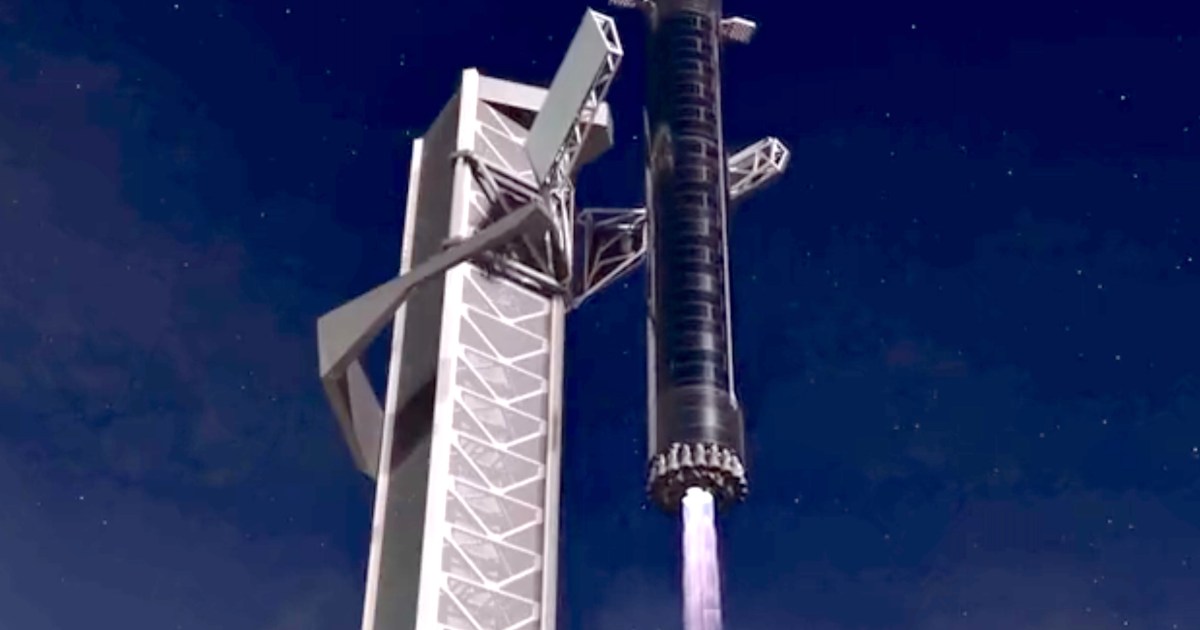

The Starship — comprising the first-stage Super Heavy booster and the upper-stage Starship spacecraft — is the most powerful rocket ever to fly and could one day carry crew and cargo to the moon, Mars, and perhaps on voyages even farther into deep space.
SpaceX fans are patiently waiting for news of the Starship rocket’s fifth test flight as it’s expected to involve the first attempt at catching the 71-meter-tall Super Heavy when it comes in to land shortly after deploying the spacecraft to orbit.
SpaceX chief Elon Musk shared an animation on Monday created by X (formerly Twitter) user Erc X that shows how the procedure is likely to work.
pic.twitter.com/wg1cbLVvho
— Elon Musk (@elonmusk) July 30, 2024
The animation was actually created a couple of years ago when SpaceX was already discussing how it wanted to land the Super Heavy. By sharing the clip again on Monday, Musk has all but confirmed that the planned maneuver is still pretty much as depicted in the animation.
As the sequence shows, the idea is to use two giant mechanical arms to secure the Super Heavy booster as it returns home. Using arms in this way eliminates the need for landing legs (as seen on SpaceX’s workhorse Falcon 9 rocket), which lightens the load and reduces fuel costs.
Once the Super Heavy is secured, the arms place the booster back onto the launchpad before grabbing an upper-stage Starship spacecraft and placing it atop the booster. Following checks and any necessary refurbishment work, the rocket would be ready to fly again.
Of course, there’s no guarantee that the catching maneuver will work as planned on the Starship’s next flight, which could take place in August. But engineers will no doubt learn a lot from the effort, enabling them to refine the procedure before getting it right over a series of flights, just as they did with the Falcon 9’s upright landing, which is pretty close to flawless these days.
Such a procedure enables SpaceX to reuse its spaceflight hardware over and over, leading to more cost efficient space missions.






